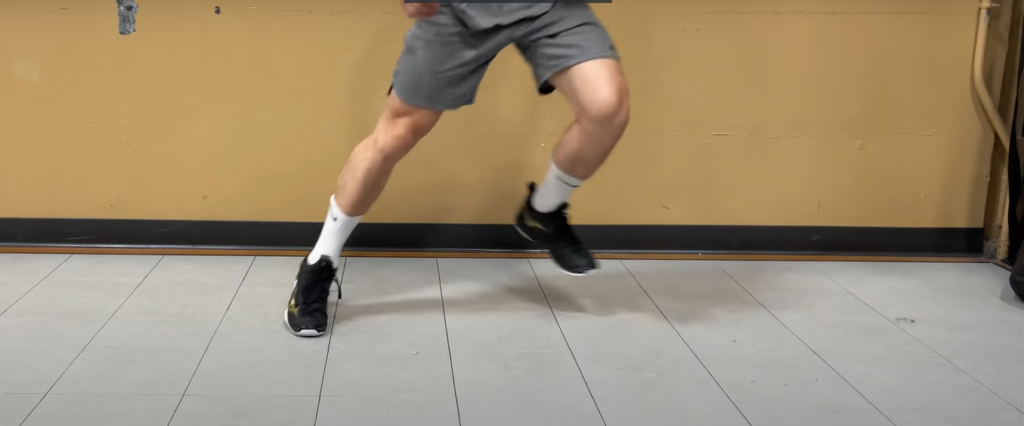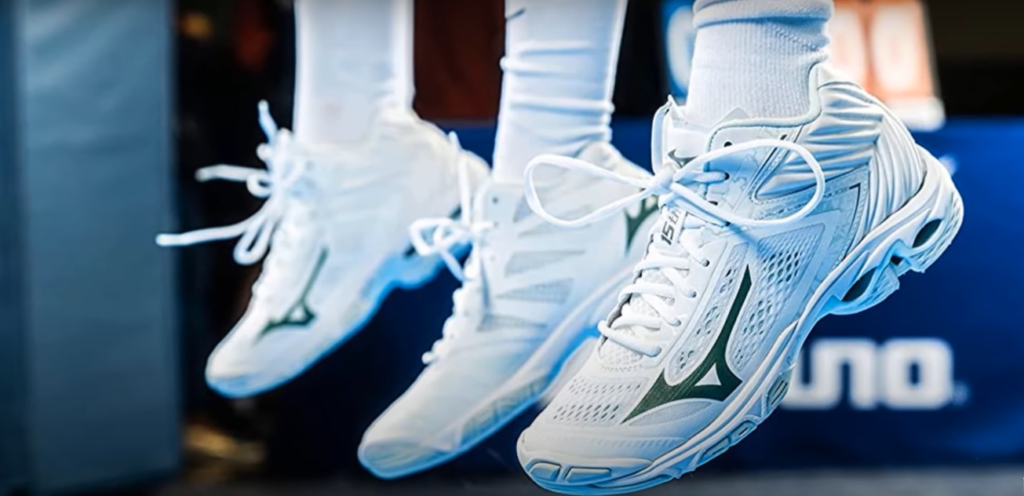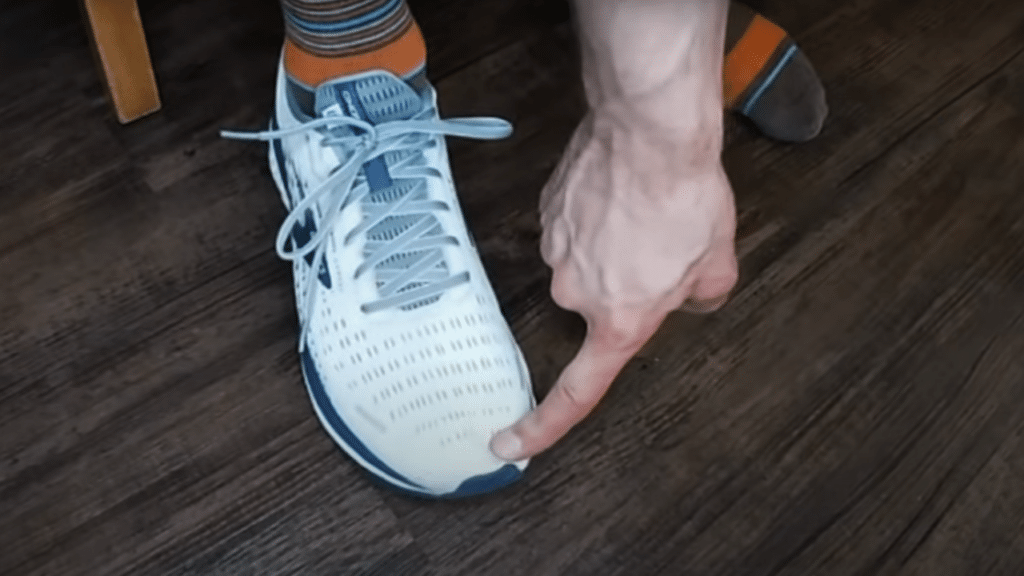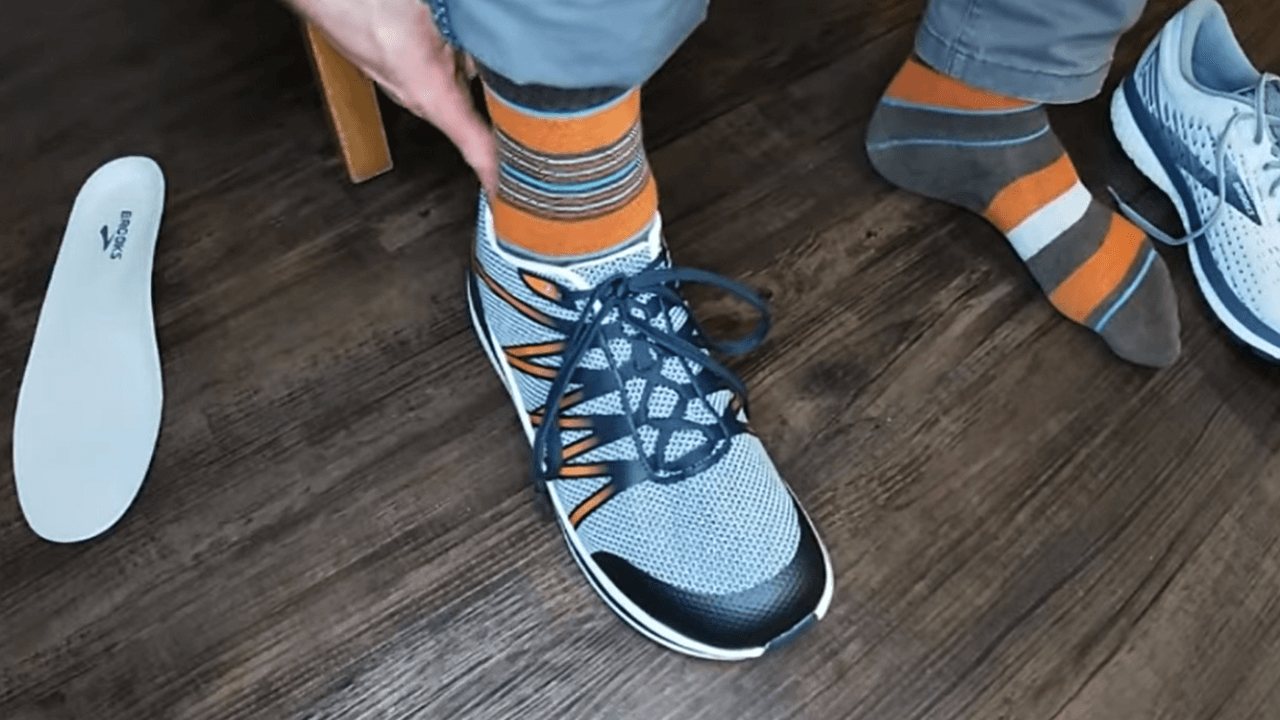Volleyball shoes are a crucial part of a player’s gear, providing support, stability, and traction on the court. But if you want to buy the right pair, the question arises: should volleyball shoes be tight? The answer is not straightforward and has been debated among volleyball players, coaches, and experts.
This article will explore the perplexing world of volleyball shoes and examine the importance of a proper fit for volleyball players. We will also provide an overview of the debate on whether volleyball shoes should be tight and examine the arguments for and against this controversial topic.
Arguments for tight volleyball shoes

There are several arguments in favour of tight volleyball shoes:
Enhanced performance
1: Better control and stability:
Tight volleyball shoes provide better control and stability for players. When shoes fit snugly, they reduce the amount of movement inside the shoe, allowing the player to make quick movements with ease.
2: Improved jumping and landing:
Tight shoes provide better support for the foot, which can help improve jumping and landing techniques. With the foot securely in place, the player can jump higher and land more precisely.
Reduced risk of injury
1: Increased support and protection for ankles:
Volleyball involves a lot of jumping, landing, and sudden movements, which can put a lot of strain on the ankle. Tight volleyball shoes provide increased support and protection for the ankle, reducing the risk of injury.
2: Minimized foot slippage:
When the shoe fits snugly, the foot is less likely to slide inside the shoe, which can help prevent blisters and other foot injuries. Tight shoes also improve grip on the court, reducing the risk of slipping and falling.
Arguments against tight volleyball shoes

While there are compelling reasons to choose tight volleyball shoes, there are also some arguments against this approach. Some of the most common concerns include the following:
Comfort Concerns
1: Lack of flexibility and breathability:
Tight volleyball shoes can be uncomfortable for extended periods, as they may not allow for much flexibility or breathability.
2: Increased foot fatigue and pain:
If the shoes are too tight, they can cause the foot to become tired or painful, affecting a player’s performance on the court.
Potential for foot problems
1: Development of blisters and calluses:
If the shoes are too tight, they can cause blisters and calluses to form on the foot, which can be painful and uncomfortable.
2: Increased risk of plantar fasciitis and other injuries:
If the shoes do not fit properly, they can put undue pressure on the foot, leading to injuries like plantar fasciitis or other foot problems.
Factors to consider when choosing volleyball shoes
When choosing the right volleyball shoes, there are several factors to consider. Some of the most important include:
Foot shape and size:
Everyone’s feet are different, and shoes will fit differently depending on the shape and size of your foot. It’s important to try on several different styles and sizes to find the right fit.
Type of playing surface:
The type of court you will be playing on can also affect the shoe you choose. Some shoes are designed for indoor courts, while others are better suited for outdoor play. It’s important to consider the playing surface and choose shoes that provide adequate grip and support.
Personal preference:
Ultimately, the best volleyball shoe feels comfortable and provides your needed support and stability. Some players may prefer a certain style or brand of shoe, while others may prioritize different features.
Consideration of the type of socks to be worn:
The type of sock you wear with your shoes can also affect the fit. It’s a good idea to try on shoes with the socks you plan to wear during play to ensure a proper fit.
The Importance of Wearing Proper Volleyball Shoes
Volleyball is a high-intensity sport that requires quick movements, sudden stops and jumps. As such, volleyball players must wear shoes that offer support, stability, and comfort.
This article will discuss the importance of wearing proper volleyball shoes and how they can help prevent injuries, improve performance, provide support and stability, and enhance comfort.
Preventing Injuries:
One of the most important reasons to wear proper volleyball shoes is to prevent injuries. Volleyball involves a lot of jumping and landing, which can put a lot of stress on the feet and ankles.
Wearing shoes designed specifically for volleyball can help absorb shock and reduce the risk of injuries such as ankle sprains, plantar fasciitis, and stress fractures.
Improving Performance:
Wearing proper volleyball shoes can also improve performance on the court. Volleyball shoes have features such as a non-marking sole, good traction, and a lightweight design allowing quick movements and better control. With the right shoes, players can jump higher, move faster, and react more quickly to the ball.
Providing Support and Stability:
Proper volleyball shoes provide the support and stability players need to perform at their best. They offer midsole cushioning, a sturdy heel counter, and a flexible forefoot that helps absorb shock and stabilize during sudden movements. Shoes that provide ample support can also help reduce the risk of injuries and improve overall performance.
Enhancing Comfort:
In addition to preventing injuries and improving performance, proper volleyball shoes enhance court comfort.
Shoes that fit well can help reduce foot fatigue and prevent blisters. Volleyball shoes also offer breathability and ventilation to help keep the feet cool and dry during intense matches.
Are Volleyball Shoes Supposed To Be Tight | Finding the Right Fit for Your Volleyball Shoes
Regarding volleyball shoes, finding the right fit is crucial for both performance and injury prevention. Ill-fitting shoes can lead to discomfort, instability, and injuries such as ankle sprains or plantar fasciitis. Therefore, it’s important to take the time to find the perfect fit before hitting the court.
Importance of finding the right fit:
Volleyball players need shoes that fit well and provide adequate support, comfort, and stability to keep them performing their best during matches. If shoes are too loose, they can cause slips and falls, leading to potential injuries.
On the other hand, if they are too tight, they can restrict blood flow and cause discomfort, hindering the player’s performance.
How to measure your foot size:
The first step in finding the right fit for your volleyball shoes is accurately measuring your foot size. The best time to do this is at the end of the day when your feet are at their largest.
Use measuring tape to measure the length of your foot from the heel to the longest toe. Repeat the process with the other foot, as there may be slight differences in size.
Tips for choosing the right size volleyball shoes:

Once you have measured your feet, it’s time to choose the right size of volleyball shoes. Some tips to help you make the right choice:
- Consider the brand: Different brands may have slightly different sizing, so try on shoes from different brands to see which fits best.
- Leave some space: When trying on shoes, ensure space between the end of your longest toe and the tip of the shoe comfortably.
- Check for width: Volleyball shoes should fit snugly around the midfoot and heel but not feel too tight or constricting.
- Try on both shoes: Try them on and walk around to ensure they fit properly and feel comfortable.
Trying on and testing volleyball shoes:
Once you have chosen a few pairs of volleyball shoes that fit well, it’s time to try them on and test them out.
Wear your volleyball socks when trying on shoes to ensure the right fit. Walk around in them, do some light jumping and lunging, and ensure the shoes feel comfortable and stable.
Conclusion
In conclusion, the importance of wearing proper volleyball shoes must be balanced. It prevents injuries, improves performance, provides support and stability, and enhances comfort.
When it comes to the debate on whether volleyball shoes should be tight or loose, it ultimately depends on personal preference and the individual’s needs. Tight shoes offer better support and stability, while loose shoes provide more flexibility and comfort.
Experts suggest balancing the two for optimal performance and injury prevention. Find the right fit for your volleyball shoes, which can be done by measuring your foot size, following sizing charts, trying on and testing shoes, and seeking expert guidance.
By finding the right volleyball shoes, you can enjoy a safer, more comfortable, and more successful playing experience.
FAQs:
How should volleyball shoes fit?
Some players prefer tight shoes for better support and stability, while others prefer loose shoes for more flexibility and comfort. It ultimately depends on preference and the individual’s needs. Experts suggest balancing the two for optimal performance and injury prevention.
Can I wear regular athletic shoes for volleyball?
While regular athletic shoes can provide some support and cushioning, they are not designed specifically for volleyball and may not provide the support and stability required for the sport. Investing in proper volleyball shoes for optimal performance and injury prevention is best.
What is the exact period to replace my volleyball shoes?
Replacing volleyball shoes every 6 to 12 months or when they show signs of wear and tear, such as worn-out soles, torn uppers, or loss of cushioning, is recommended. Playing in worn-out shoes can increase the risk of injury and decrease performance. It is important to regularly check the condition of your shoes and replace them as needed.
